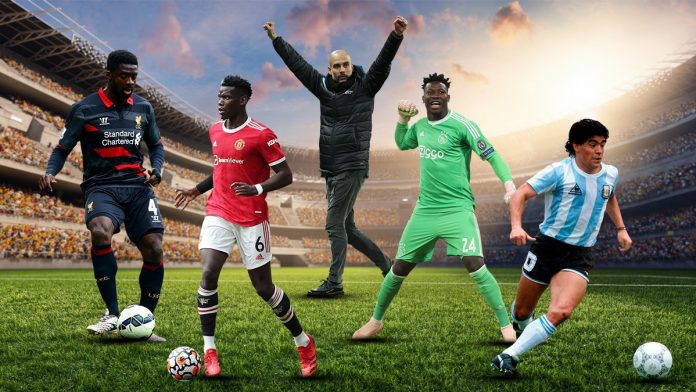Drugs or doping have often tarnished football’s reputation. In this article, we will take a look at the footballers who were banned because of doping.
Around the world, football is regarded as the most beautiful game. It also happens to be the sport that people look forward to seeing the most during the year. Compared to past times, the modern game is more about technique and tactics. However, a dominant physical display might still tip the scales in favour of one team over the other.
There have been times when circumstances get a little strange and unique. Johan Cruyff finally refused to wear Adidas’ third stripe for the 1974 World Cup. Cristiano Ronaldo, in his second stint with Manchester United, declined to come off the bench against Tottenham in extra time. However, the use of medications or drugs to improve physical performance without proper authorization is the biggest source of concern in the football industry.
The authorities are adamant that it is the players’ duty to prevent any chemical that has been banned from entering their bodies, whether intentionally or unintentionally. However, a few situations do occasionally surface in the game. There have been multiple players who have thrown away their skills because of these performance-enhancing drugs. But if you believe you have the skills to succeed at roulette online then you should not waste your time and should use your intelligence to earn quick bucks.
In this article, we will take a look at the few occasions where footballers were banned for doping or use of drugs.
Kolo Toure
Yaya Touré’s older brother, Kolo Toure had served a six-month ban. During his tenure at Manchester City, defender Kolo Touré was caught testing positive for anti-doping agents. When it occurred in 2011, City was forced to use Joleon Lescott in the backline to cover for him. Touré, however, claimed in his defence to have taken his wife’s pills without fully understanding them.
Paul Pogba
The most recent player scheduled to serve a lengthy suspension is Paul Pogba. The player had requested a counter-analysis, but it was discovered that his original sample had too much testosterone in it. The France player who won the FIFA World Cup in 2018 is headed into ruin. In addition to being illegal in Italy, a four-year suspension was suggested. Pogba restated that he was unaware that the supplement he was taking contained testosterone.
Paul Pogba was handed a four-year ban from football after he was found guilty of doping.
Pep Guardiola
Even though Pep Guardiola guided Manchester City to a triple last season, which included the team’s first-ever UEFA Champions League victory, he was previously caught in the act while he was still a player. After his contract with FC Barcelona expired, he signed with Brescia to play in the Serie A in 2001. It was discovered that the La Masia grad was using testosterone. However, following his appeal, he was exonerated of all allegations later in 2009.
Andre Onana
Manchester United signed Andre Onana during the summer transfer window. After deciding to part ways with veteran goalkeeper David de Gea, United acquired Onana from Inter Milan for a transfer fee of £47.2 million. However, the goalie once stated that taking his wife’s pills by accident nearly ended his career. As a result, he was banned for nine months after using furosemide as a diuretic in his urine.
Diego Maradona
Aside from being a fantastic player, the Argentina legend was most known for his “hand of god” goal against England during the 1986 World Cup. However, Diego Maradona has since been detected multiple times for doping. As a member of Napoli in 1991, he was banned for the first time. Maradona was banned for fifteen months after testing positive for cocaine.
When he was discovered using ephedrine at the 1994 World Cup, which was hosted in the United States, the same term ban was imposed once more. After that, he returned home to play for Boca Juniors, a stint that ended abruptly when it was discovered that he had taken drugs.
Conclusion
In conclusion, there are still issues with drug use and doping in the football industry. Physical power still plays a significant role in the game, even though skill and strategy have recently taken centre stage. However, the use of illicit substances to enhance performance continues to be a major source of concern. Players like Paul Pogba, Kolo Toure, and Diego Maradona have been suspended for doping. This demonstrates how crucial it is to implement anti-doping legislation strictly. Even celebrities have faced allegations, but in the end, Pep Guardiola was found not guilty. The episode involving Andre Onana, who inadvertently took a banned substance, highlights the need for player understanding and accountability. Players must be extremely careful about what they put into their bodies since doping can have serious repercussions, such as extended bans and damaged reputations.


